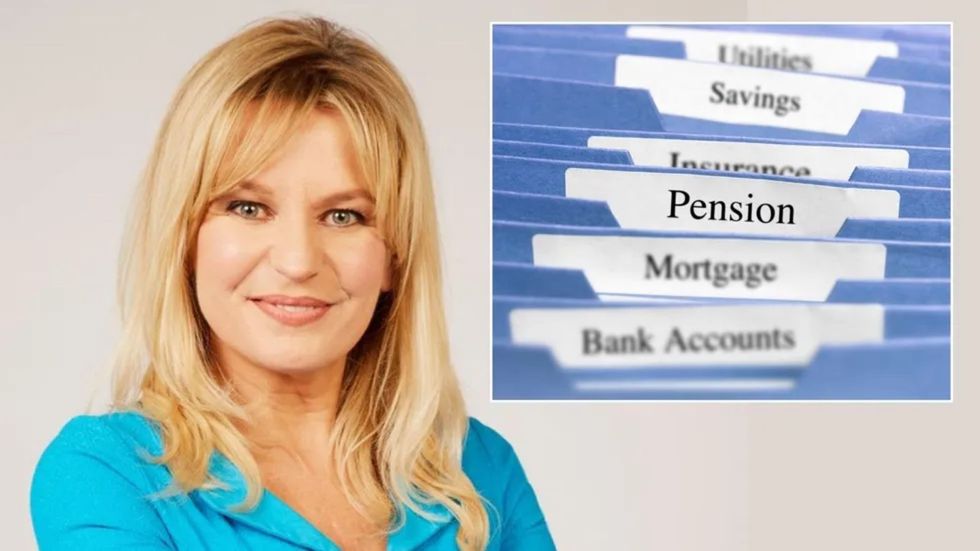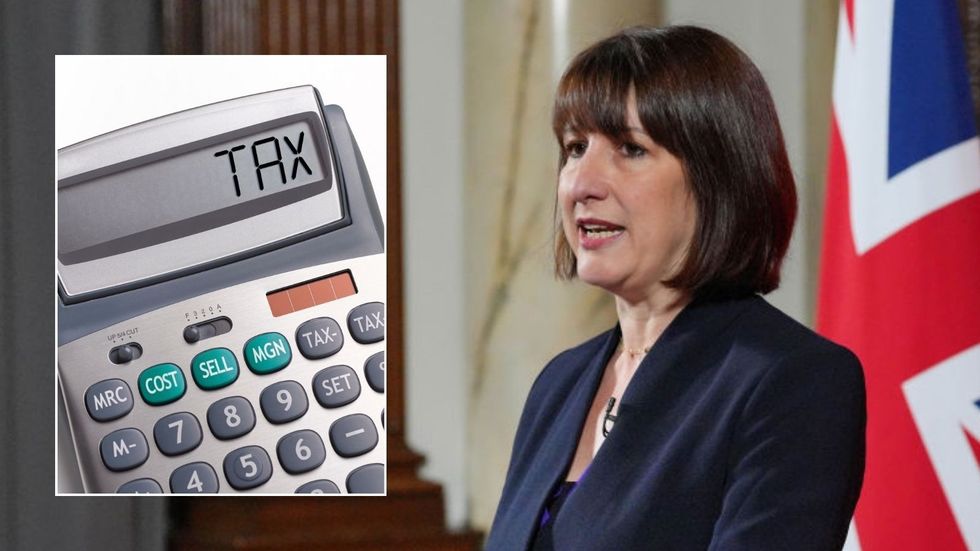'Will your unused pension pot be hit by Rachel Reeves's tax raid?' Jasmine Birtles answers your questions
Pension expert Jasmine Birtles breaks down how your pension will be affected by looming changes to the inheritance tax regime
Don't Miss
Most Read
The Government has announced plans to bring most unused pension funds and death benefits into the value of a person’s estate for inheritance tax (IHT) purposes from April 2027.
Currently, defined contribution pension pots left at death are typically held in trust and lie outside the estate, meaning they usually avoid the huge 40 per cent IHT charge if beneficiaries inherit them.
Jasmine Birtles is the founder of MoneyMagpie.com. Get their free investing newsletter here.
These plans (and they still are just plans, not a definite yet) mark a major change in how pension death benefits are treated under tax law.
In fact, currently putting more money into your pension is a really useful way to reduce IHT on larger estates so a lot of wealthier people make sure they have a lot in their pension pots
**ARE YOU READING THIS ON OUR APP? DOWNLOAD NOW FOR THE BEST GB NEWS EXPERIENCE**
 Jasmine Birtles answers questions from GB News members in the exclusive pensions and retirement Q&A | JASMINE BIRTLES | GETTY
Jasmine Birtles answers questions from GB News members in the exclusive pensions and retirement Q&A | JASMINE BIRTLES | GETTY Under the draft legislation published this year, executors (or “personal representatives”) will be responsible for identifying, reporting, and paying any IHT on unused pension balances.
Exemptions will remain for lump sums passing to a surviving spouse, civil partner, or registered charity, and for death-in-service lump sums from both discretionary and non-discretionary pension plans.
According to government estimates, in the first year around 10,500 estates that previously faced no IHT liability will now. And some 38,500 estates that paid IHT before will pay even more—on average an additional £34,000, especially as pension pots may lift estates over the £325,000 nil-rate threshold.
Executors will face new burdens: collecting pension values, coordinating with multiple providers, and using HMRC tools to calculate and settle the tax—usually within six months of death. Penalties may apply for missing paperwork.
Do you have a money story you’d like to share? Get in touch by emailing money@gbnews.uk.
 Reeves is being urged to scrap the "most hated tax" on pensions | PA/GETTY
Reeves is being urged to scrap the "most hated tax" on pensions | PA/GETTY What can you do if these proposals are passed?
These are all just plans at this stage, but it’s a good idea to be prepared in case they do become law. Here are three ways you could mitigate the effects of the new proposed rules.
1. Make gifts during your lifetime
One option is to withdraw and gift money from your pension or other assets while you’re alive—particularly to children or grandchildren. Transfers between individuals are exempt up to £3,000 per tax year, and larger gifts can qualify under the seven-year rule: if you live seven years after making a gift, it falls outside your estate for IHT purposes. Actually it’s a good idea to do this generally so keep it in mind when it comes to Christmases and birthdays!
The key is balancing this with your income needs in retirement. If you’re healthy and you don’t need every penny of your pension pot, drawing income gradually and gifting some of it could reduce your taxable estate—and shift wealth out of IHT’s reach.
But if you think you might need more cash for care and so on, hold back from gifting that money. You need to look after your essentials first and only give out of extra money.
MEMBERSHIP:
- MAPPED: Full list of local authorities housing hotel migrants - how many are in YOUR area?
- REVEALED: The 32 seats that could parachute Nigel Farage into No10 as General Election petition hits 800k
- Think Reform has gone soft? Farage's migration blueprint will leave you eating your words - Ann Widdecombe
- REVEALED: Panic stations for Keir Starmer as migrant hotel fury sparks ballot box revenge in 20 seats
- Lucy Connolly's release is a step in the right direction, but the screws are turning – Matthew Goodwin
2. Use you pensions wisely for income before death
Rather than leaving a large unused pension pot behind, consider taking more flexibly-access drawdown, or even purchasing an annuity, to draw from your fund before passing away. This both provides income now and reduces the pot’s size for estate valuation.
For example, someone might normally use other assets for spending and leave their full pension intact as inheritance. Under the new rules, however, that pot becomes part of their taxable estate. Drawing some of it down during life avoids accumulation of a large unused pension that could trigger IHT.
LATEST DEVELOPMENTS:
- Bitcoin or Gold? Jasmine Birtles reveals where smart money is going in 2025
- 'Parents must act now to secure best back-to-school savings!', Jasmine Birtles reveals how to cut costs
- 'Don't get caught in these summer scams!' Jasmine Birtles reveals how you can spot the fraudsters
 Britons are concerned about the rising tax burden | GETTY
Britons are concerned about the rising tax burden | GETTY3. Make full use of IHT allowances and exemptions
Even with pensions counted in your estate, strategic use of nil-rate bands, residence nil-rate bands, and spousal exemptions can preserve value:
- The standard nil-rate band is £325,000 per person (and transferable between spouses).
- The residence nil-rate band adds up to £175,000 for homes left to direct descendants, though it tapered for estates over £2million.
If your estate—including pension value—stays under these thresholds, no IHT is due. Married couples or civil partners benefit from combined allowances and can shelter more. In addition, leaving pension benefits to a spouse or charity remains exempt from IHT entirely.
Why this matters now
These proposals represent a significant shift in how retirement savings are taxed on death. Pensions have long been seen as a tax-efficient inheritance tool, thanks to their exclusion from IHT and their flexibility under pension freedoms. If the proposed changes to take effect from April 2027, that advantage might no longer hold
While most estates will still escape IHT, families with multi-generational wealth, homeowners with large pension balances, or those who transferred defined benefit schemes into DC pots post-2015 may be particularly affected. It’s a really good idea to plan early so that your family are not caught in the IHT net.
Get professional advice
If you have a sizable pension pot and you’re worried about IHT implications, now is the time to talk to a financial advisor and get a professional take on your situation. If you don’t have an advisor that you use regularly, take a look at Vouchedfor.com to find advisors with good references from former clients.
More From GB News











